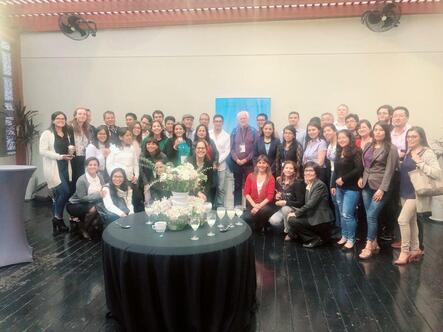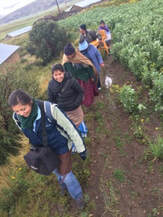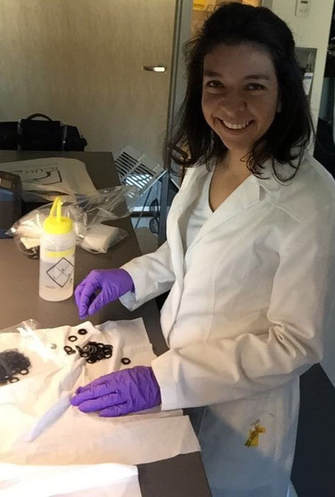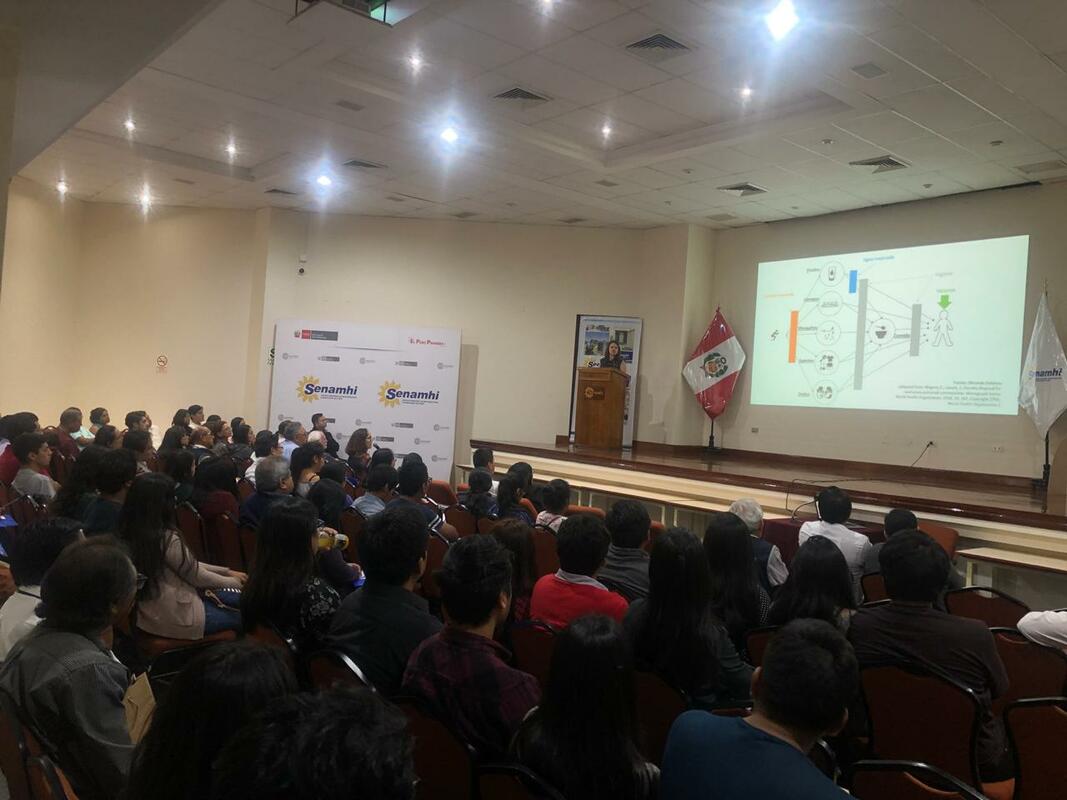Phase 1: Training Initiatives
Training is critical for building a sustainable capacity for environmental health research in Perú. Through our GeoHealth Hub planning grant we identified three key areas for environmental health research and training which comprise the three areas of focus of the linked U01 research grant proposal: indoor air pollution, outdoor air pollution and climate change. We offer short, medium and long term training opportunities to professionals from Peru, Ecuador, and Bolivia, that contribute to increase the interest and quality of research in the region.
Research Courses

As part of our training initiatives, we offer an annual one-week workshop on environmental health in Lima for professionals from Perú, Bolivia, and Ecuador with instructors from Emory University, University of Georgia, Johns Hopkins University, Universidad de Chile, and Universidad Peruana Cayetano Heredia. This training course focuses on core topics of environmental health, i.e., environmental epidemiology, statistics, exposure assessment, and toxicology, as well as bioethics, and practical skills as STATA, study designs, and data management. It also includes case studies in environmental health, preferentially from Perú. This course was developed based on a successful three day training course we organized in Lima in 2014 (Click here for details - document is in Spanish).
A second training initiative is a an annual course in environmental health at the well-established Universidad de Chile Summer School (EIV). The GEOHealth Hub fully funds 5 qualified applicants yearly to attend two-weeks of environmental health topics on issues of environmental and occupational health, epidemiology and biostatistics with nationally and internationally renowned speakers. Students attending the EIV have the added benefit of attending courses on other public health topics offered in addition to those in environmental health. Content level is more detailed and taught at a more advanced level, so it is suitable for a student who attended the short course in Perú previously.
A second training initiative is a an annual course in environmental health at the well-established Universidad de Chile Summer School (EIV). The GEOHealth Hub fully funds 5 qualified applicants yearly to attend two-weeks of environmental health topics on issues of environmental and occupational health, epidemiology and biostatistics with nationally and internationally renowned speakers. Students attending the EIV have the added benefit of attending courses on other public health topics offered in addition to those in environmental health. Content level is more detailed and taught at a more advanced level, so it is suitable for a student who attended the short course in Perú previously.
Environmental Health Scholars

The Environmental Scholars Program supports young researchers to participate in ongoing research projects and gain research experience through an apprenticeship model. We expect these students to be actively engaged in data collection or analysis in these studies.
Click here to see our Environmental Scholars during fieldwork activities in the region of Piura, Perú in 2016.
Click here to see our Environmental Scholars during fieldwork activities in the region of Piura, Perú in 2016.
One on One Training
We fund one-on-one mentorships to Peruvian environmental health researchers by bringing investigators from Chile and the US to Perú. The goal with this model is to train local investigators, who are already engaged in research, in more advanced methods in environmental health.
Graduate Training
The GEOHealth Hub supports three students pursuing their PhD degrees at at Johns Hopkins University and the Universidad de Chile. Once required courses have been completed, trainees will identify a thesis in an environmental health topic of interest, and write a proposal for their research. The dissertation must be based on original research based in Perú, worthy of publication. Trainees undertake their research at a field in Perú where a program faculty member is conducting an environmental health project.
With a partnership from the School of Sciences and Philosophy and the School of Public Health, the GeoHealth Hub collaborated on developing a graduate program in Environmental Sciences with mention in Environmental Health at the Universidad Peruana Cayetano Heredia. The curriculum suits local research and programmatic needs and has started enrolling students on a yearly basis. More information HERE
With a partnership from the School of Sciences and Philosophy and the School of Public Health, the GeoHealth Hub collaborated on developing a graduate program in Environmental Sciences with mention in Environmental Health at the Universidad Peruana Cayetano Heredia. The curriculum suits local research and programmatic needs and has started enrolling students on a yearly basis. More information HERE


